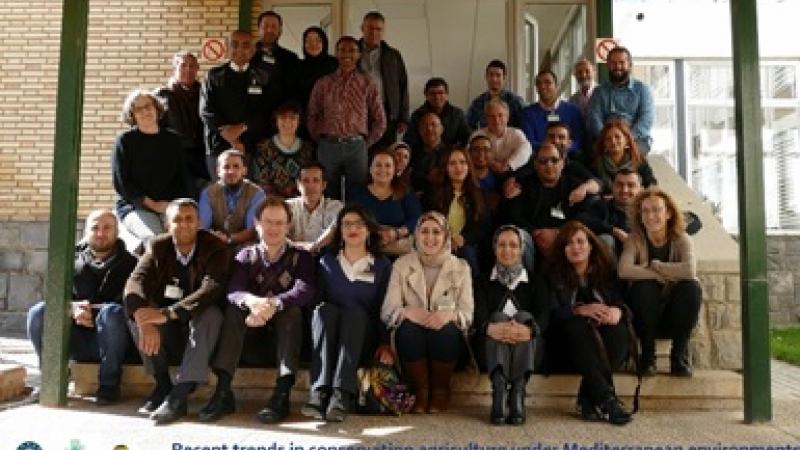International Course on Conservation Agriculture in the Mediterranean Environments

Recent trends in Conservation Agriculture were discussed at an advanced international course on Conservation Agriculture (CA) in the Mediterranean Environments (North & South), organized jointly by the International Centre for Advanced Mediterranean Agronomic Studies (CIHEAM) through the Mediterranean Agronomic Institute of Zaragoza (IAMZ), ICARDA and the French Agri-agency Fert. The course was conducted from 4-9 April 2016, in Zaragoza (Spain), with 21 participants from North (Spain, Portugal), South (Algeria, Morocco and Tunisia) and Turkey and Lebanon.
This interactive course addressed the recent trends in Conservation Agriculture (CA) practices and the major concerns that farmers face in the adoption of CA, which include tradeoffs between animal and soil for the use of crop residues, as well as limited knowledge sharing and technical assistance. Although the potential benefits of CA in Mediterranean conditions are high for farmers, society and the environment, the system and its adoption and spread need to be further optimized.
With CA, production costs and negative environmental impacts can be minimized, while improving productivity and resilience, including climate change adaptation and mitigation. Conservation agriculture, which has been developed substantially worldwide over the recent decades, is a sustainable and profitable system of agricultural production and land management based on three interlinked principles: no or minimum mechanical soil disturbance, maintenance of soil organic cover, and crop diversification.
